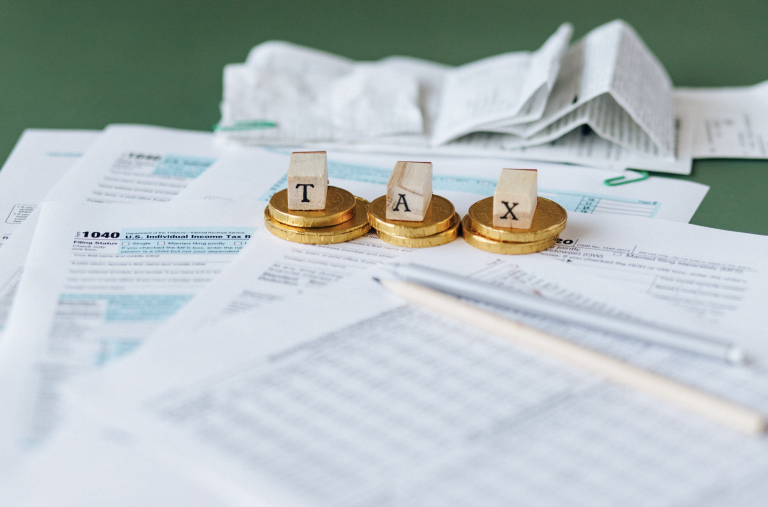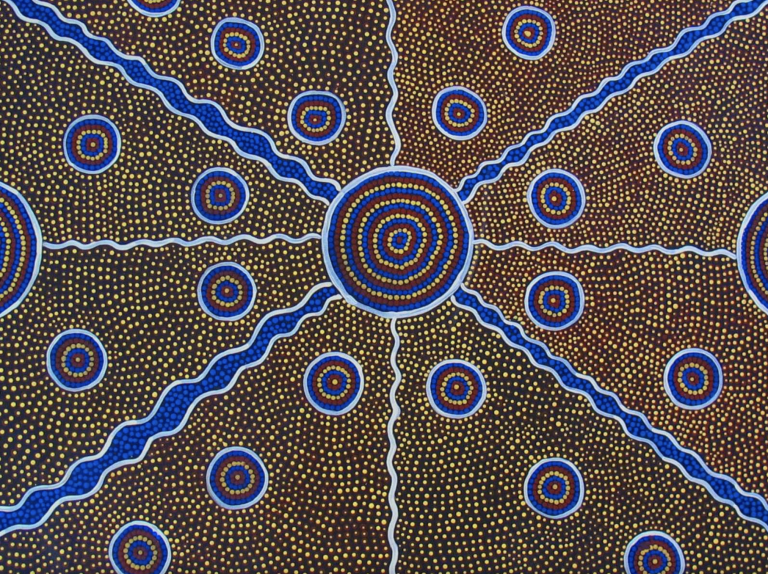What Makes Ramadan so special in Australia?
The month of Ramadan is now upon us. And as Muslims and none Muslims celebrating in Australia and around the world, one can’t but ask the question – what makes Ramadan so special?
What is this month that causes people to wake up late in the night to eat the pre-dawn meal, and stand late into the night in prayer and devotion?
Perhaps more particularly, why this month over all other months?
That is something we will be exploring over the length of this important piece by our team.
What is the month of Ramadan?
For those who may not be aware, the month of Ramadan is the ninth month of the Islamic calendar (hijri calendar).
In it, Muslims observe fasting, or “sawm” one of the five pillars of Islam. They refrain from eating, drinking and sexual relations over the period of the day by way of obligation, whilst also getting involved in a number of acts of virtue, hoping to attain the month’s blessings.
In a nutshell, the month of Ramadan is the month where human desire is subdued in an attempt to tame that which tends to lose its grip over the year – the ego.
This might sound tough, but ask any Muslim about the month of Ramadan, and their eyes will swell, their hearts race, and their body crave the spiritual cleanse that comes with the blessed month.
In Islam, fasting Ramadan is a means of expiation for the sins committed since the previous Ramadan, so long as one avoids major sins.
The Prophet Muhammad (peace and blessings be upon him) said: “The five daily prayers, from one Friday to the next and from one Ramadaan to the next are expiation for (sins committed) in between, so long as you avoid major sins” (Sahih Muslim).
Apart from the spiritual cleanse that comes with the beginning of the month of Ramadan with the new moon, there is immense virtue that has been narrated in numerous other divine Muslim texts. reports and
A month of the Qur’an
Muslims believe that Ramadan is the month in which the Qur’an (Islam’s holy book) was revealed. God says in the second (and largest) chapter of the Qur’an:
“The month of Ramadan in which was revealed the Quran, a guidance for mankind and clear proofs for the guidance and the criterion (between right and wrong). So whoever of you sights (the crescent on the first night of) the month (of Ramadan i.e. is present at his home), he must observe Sawm (fasts) that month…”[Qur’an 2:185]
The centrality of the Qur’an in the life of a Muslim is no secret – reciting the words of God brings a unique serenity into the heart of the Muslim.
Ramadan encompasses all of that: listening to the Qur’an in the night prayers, reciting the Qur’an throughout the day, walking around the markets hearing the Qur’an – many Muslims believe this is a feeling that has to be felt to be beleived.
God further says in the chapter titled, the Chapter of Power:
“We have indeed revealed this in the ‘Night of Power’. And what will explain to you what the night of power is? The Night of Power is better than a thousand months. Therein come down The Angels and the Spirit by Allah’s permission, on every errand. “Peace!…This until the rise of Morn!” [Qur’an 1-5]
So what is the night of Power?
The night of Power
Laylatul Qadr, or as popularly translated ‘the Night of Power’ is a night in the final ten nights of Ramadan which is said to be the most blessed night of the entire year.
As is mentioned in the Chapter in the previous section, the night of Power is “better than a thousand months”.
Muslims throughout the ages have spent this night in sincere devotion before their Creator, praying during the night, giving charity, making earnest du’a, and forming firm intentions for the following year until Ramadan.
The Prophet said:
“Whoever spends Laylat al-Qadr in prayer out of faith and in the hope of reward, will be forgiven his previous sins” [Narrated by al-Bukhaari and Muslim]
But the question arises: When is Laylatul Qadr?
The quick answer: We don’t know.
The date of Laylatul Qadr has been hidden from us, from the Infinite Wisdom and Mercy of God. Scholars, jurists and commentators have long debated when this date is, with opinions including the 21st night of Ramadan, the 27th night (which is the most popular opinion), and the 29th.
Regardless of when it is, perhaps from amongst the reasons it was hidden was to discourage complacency in the other nights of Ramadan, which remain significantly virtuous in their own right.
Cherishing Community
Ramadan is much more than a time of worship. It builds life-long bridges. It reunites families. It cherishes community.
From standing every night in prayer, side-by-side, to gathering to break the fast together, the month of Ramadan collectivises the purposes of the Muslim populace with one goal in mind: the pleasure of our Creator.
In Ramadan, it is encouraged to serve those fasting in the sunset meal (iftar) to help them break their fast and to assist those preparing to fast in the day by serving them the pre-dawn meal (suhoor).
The famous scholar Zayd al-Juhani said: The Messenger of God said: “Whoever gives iftaar to one who is fasting will have a reward like his, without that detracting from the fasting person’s reward in the slightest” (al-Tirmidhi, Ibn Maajah).
The Holy Month in Australia
It is probably evident by now why Ramadan is such a special time for the Muslim community. From the immense spiritual purification and psychological rest, to the bodily rejuvenation of a healthy fast, to the profound human connection of serving the community.
The Australian take on Ramadan is no short of phenomenal, too!
From the community and worship, to the joy on the streets and sharing of exotic foods and multicultural delights – Ramadan becomes a spectical for many non-Muslims to witness the harmonious tradition of Australian Muslims.
Not to mention: the end of Ramadan is met with another joyous occasion – the occasion of Eid al-Fitr. Extended family and friends from near and afar gather together to celebrate the occasion, recalling great memories from the month of Ramadan, and waiting in anticipation for the next Ramadan.
Although the Coronavirus pandemic did put a partial spanner in the works last year, changing the nature of our Ramadan and Eid experience, Muslims in Sydney, Melbourne (Victoria) and across Australia can now for the first time in two years attend the Masjid (mosque) to pray the night prayers in congregation.
Moreover, with the lockdown restrictions easing, the Muslim community can now celebrate Eid together (albeit carefully), allowing for families and friends to rejoice after a very long break!
The experience in Australia isn’t enormously different from other Muslim countries, such as Pakistan, Indonesia, Turkey, Egypt, and the Arab cities in the Middle-East and Saudi Arabia such as Dubai, Jordan, Syria, Mecca and Medina. It is a time of worship and devotion, whilst bringing hearts together.
A month of rewards – and at Crescent Wealth too!
More than anything, Ramadan is understood by Muslims to be a month of immense reward.
The reward for fasting itself is mentioned in many sayings of the Prophet Muhammad, including a very famous one as follows: “Every action of the son of Adam is given manifold reward, each good deed receiving ten times its like, up to seven hundred times. God, the Most High said: ‘Except for fasting, for it is for Me and I will give recompense for it, he leaves off his desires and his food for Me.’ For the fasting person, there are two times of joy; a time when he breaks his fast and a time of joy when he meets his Lord, and the smell coming from the mouth of the fasting person is better with Allah than the smell of musk” (Bukhari).
It is the month of Muslims being rewarded by God and rewarding others through – employees, community, others whom they are pleased with.
In a similar vein this year, we at Crescent Wealth are launching our Crescent Rewards product, offering our members a big thank you for their loyalty over the years and to our community large. To new members, we look forward to welcoming you through this spirit of rewards and generosity through the launch of our Crescent Rewards program!
A month of generosity
Muslims believe that one of the names of God is Al-Kareem, which means The Most Generous. Muslims believe that everything comes from God and returns to Him. Therefore everything we own is just a loan, something we promise to preserve, protect and share. Generosity is a desire and readiness to give.
Generosity in manifested in Islam in even one of its five fundamentals, through Zakat. This is a mandatory act of giving (which many Muslims offer during Ramadan itself) and of the key responsibilities of each adult able Muslim. The word Zakat is translated as “purification” of wealth. This donation is said to redeem and purify the wealth and well-being of a Muslim.
Further, Muslims try to extend their generosity through voluntary donations called sadaqah. This is charity given purely out of a desire to please God and help others. The linguistic meaning of the word sadaqah is honesty, or as defined by some the honesty of the heart towards the Almighty. Everything that is given gladly and intended to satisfy God is called sadaqah: from money to a smile!
A month of purification
In bringing many of these themes together, Ramadan at its highest may be described as a month of purification: of one’s self, one’s relationships, one’s inner thoughts and feelings. And also one’s wealth, through the giving of its mandatory component for the pleasure of God.
It is in a similar vein that many Muslims also become more conscious of the legality and religious ethics of their wealth during this month. Many Muslims, realising the importance of “pure” wealth and earnings, begin to eschew non-Islamic sources of income and earnings, including through their jobs, investments, etc.
In this month, Crescent Wealth is proud to work with our community to offer one such form of wealth purification, through a Halal investment option that is built on Islamic investment principles. Our super fund offers Muslims a choice for their super that is in line with their morals and values.
We offer our readers and community a warm “Ramadan Kareem” (blessed Ramadan) and hope they have a fantastic month of reflection and celebration!
Share this
You May Also Like
These Related Stories

Your Halal Superannuation Rates and Thresholds for FY 2021-22

The Furnace: a tale of the forgotten history of Aussie Muslim Cameleers starring David Wenham and Ahmed Malek


